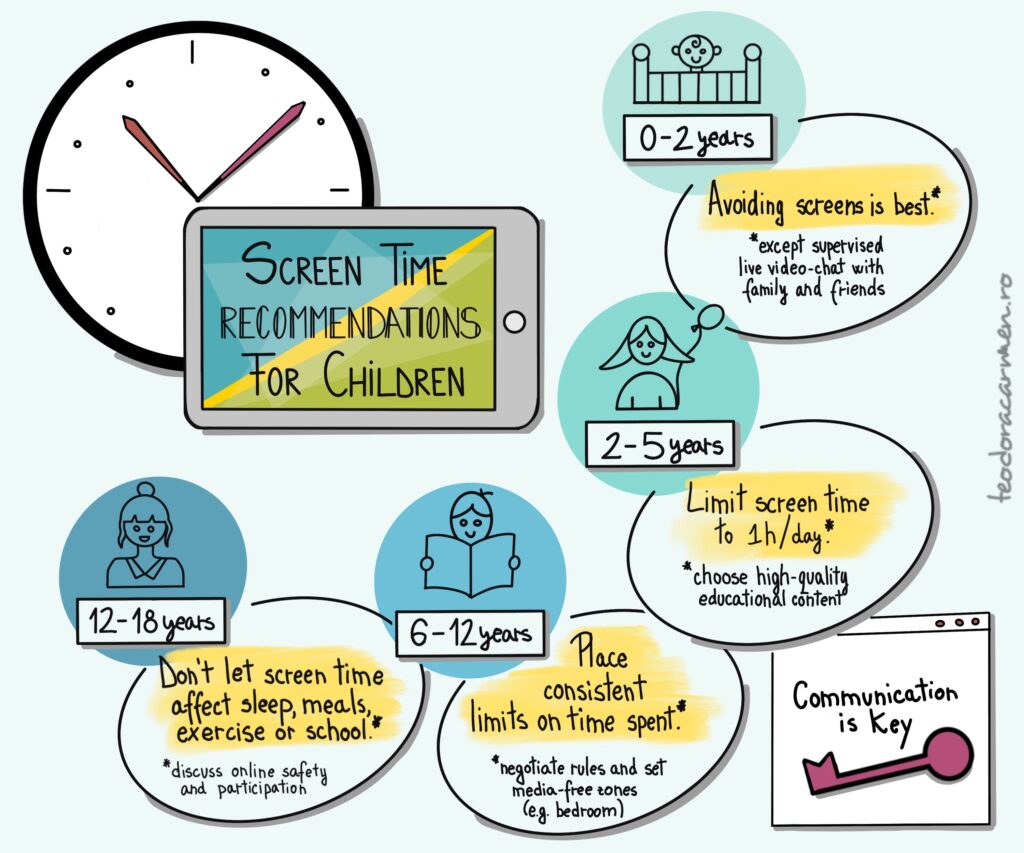Let’s face it! Keeping children away from screens is not an easy task. Technology allows them to enjoy cartoons, immerse themselves in colourful games and sing along with their favourite characters. And it happens in an instant, with a simple tap, swipe or push of a button!
As a parent, you’re often torn – do you ban screens or give in? Whether it’s a car ride, dinner at the restaurant or just plain old grocery shopping, smartphones can be a parent’s best friend. On the other hand, children can become agitated or even have tantrums when screens are taken away. So what’s the right path?
The simple answer: balance!
The long answer is a bit more complex. Experts recommend screen time be introduced gradually, according to a child’s development stage.

The first two years are crucial. When children are young, from 0 to 2 years old, they learn by interacting directly with their environment. Exploring the world using all their senses and developing the right fine and gross motor skills are some of the most important aspects of children’s overall development. These are so important that they are linked to later development of language, thinking and memory. This is why, for the first two years, screens should be avoided.
From 3 years onward, children can have about 10 to 15 minutes of screen time per day. It’s really important that in this period, the content is chosen wisely, with the parent carefully guiding the child and setting filtering & parental controls. Parents can increase the amount of time by 10-15 minutes with each year that passes, so by the time children are 5-6 years old they can have about an hour of screen time per day.
When a child enters school, screen time may increase due to educational use or socialising needs. It’s important to keep setting boundaries and media-free zones (e.g. the dinner table, bedroom), but it’s equally crucial to negotiate and listen to children’s opinions and feedback.
In the teen years, it’s relevant to let screen time interfere with regular activities such as sleep, meals, school work etc. During this time children may need a greater deal of intimacy and independence, as friends and other social relationships take a more prominent role. Parents should be understanding and choose their battles – it’s crucial to keep an open communication even in this rocky time.
Although children today are referred to as “digital natives”, in the sense that they were born and will grow up in an era of pervasive technology, it’s important to remember that they are not born with the knowledge or capacity to safely navigate the tumultuous environment which is the Internet.
Children need our patience, guidance and protection, even on the Internet.




